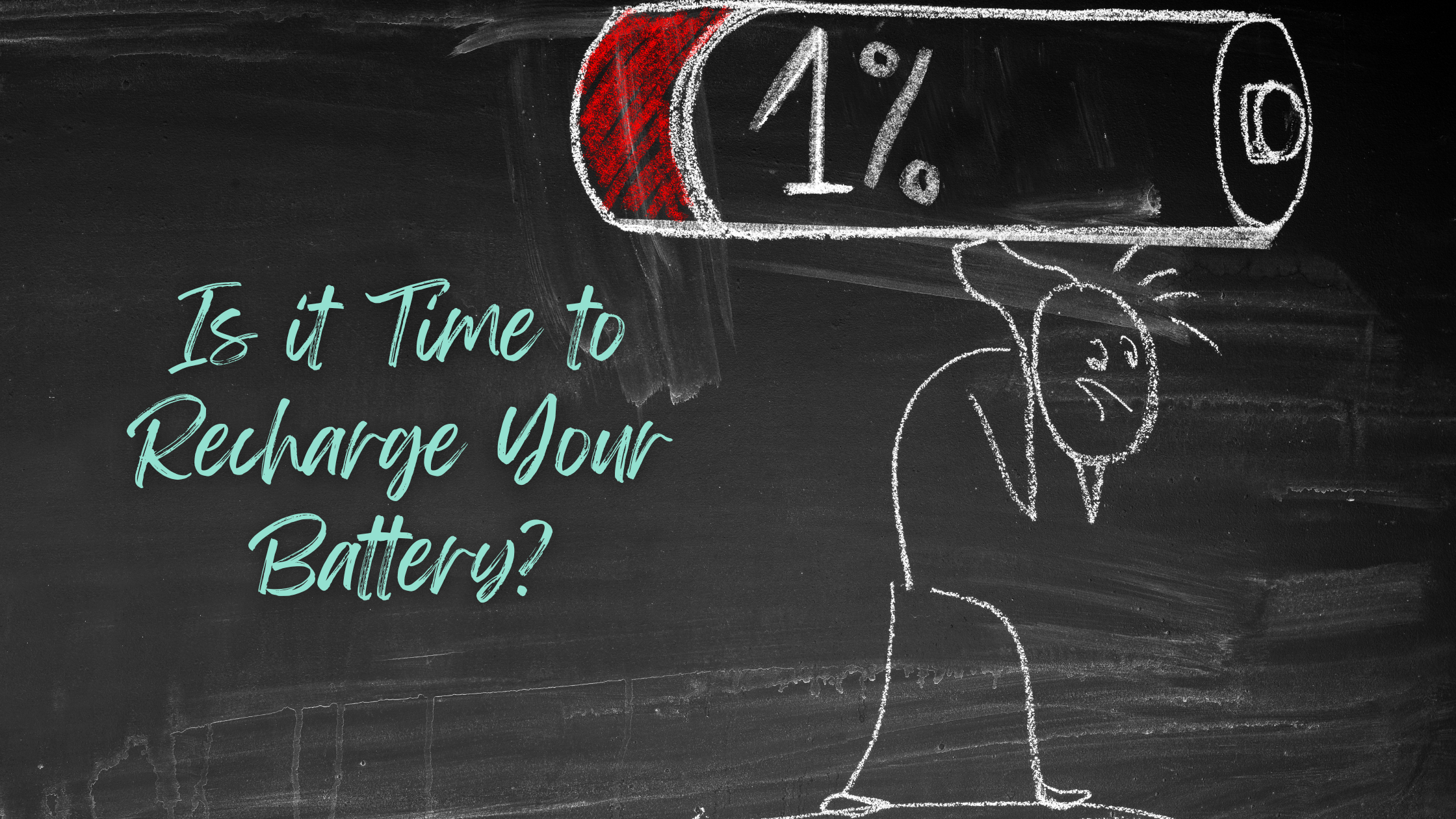Feeling Drained?
In today’s world it’s easy for our inner batteries to be low. Physical, emotional, or mental stress can all contribute to the draining feeling. When our body’s are under stress our cortisol levels increase, which interferes with how our body’s function (think fight or flight). Research shows that restorative activities such as meditation, yoga, other exercise and even being in nature can help improve our energy as well as work to reduce the risks associated with stress.
There is so much around us that could be draining our battery, and each of us has a unique set of activities that can leave us depleted. With things like work, the to-do list that doesn’t seem to end, kids extra curricular activities, being a new parent can be especially draining, lack of good quality sleep, and now we have a global pandemic to add to the list. It’s no wonder so many of us feel drained.
But what can we do to help?
Like what depletes us, what recharges us will be different for each of us, and could even vary from day to day, or even within each situation. It’s important to focus on what feels right for you in the moment. Does sitting in front of a computer all day drain you? Try to take regular breaks, even just a few moments where you can get up and stretch, grab some water, take a bathroom break, and come back.
Whatever you choose to do, it’s important to try to recharge when you can, chronic stress can lead to burnout. Signs of burnout include lack of motivation to work, trouble concentrating, lack of energy, irritability, being critical, or impatient feelings. Burnout may also manifest in physical symptoms that may include headaches, body pains, stomachaches, or other physical sensations.
Finding what works best for you may take time, and some trial and error, but once you start to pay attention to your signs, what drains you, and how to recharge, it will be easier to detect the imbalance.
Some activities that may help you recharge include:
Exercise; getting 30 minutes of exercise a day can help release stress and help boost endorphins.
Meditate; taking some time to clear your mind can be calming. Not able to completely silence your mind? Try visualization instead.
Soak up some Vitamin D; we know it’s harder to get outside in the winter months, but on warmer days, and in the warmer months, try to get outside. You can take a stroll, or just sit on the deck!
Sleep; adults should try to get between 7 and 9 hours of rest nightly. Try turning off electronic devices, especially those that emit blue light, for a minimum of 30 minutes prior to bedtime.

